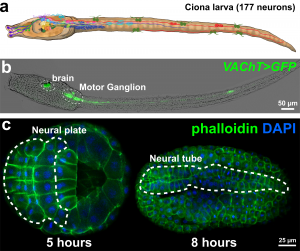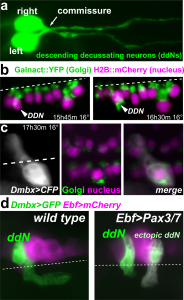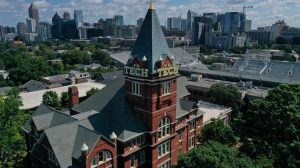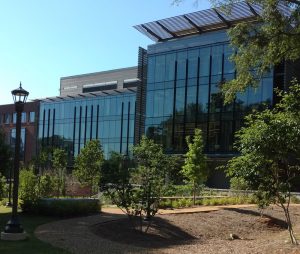Postdoc position studying polarized axon outgrowth in Ciona
Posted by A. Stolfi, on 14 January 2020
Closing Date: 31 December 2021
We have an open position immediately available for a postdoc to study the transcriptional regulation of polarized axon outgrowth in the simple embryos of the tunicate Ciona, taking advantage of their simplicity at the genetic and cellular levels. The larval central nervous system (CNS) of Ciona is a miniaturized but typically chordate CNS containing only 177 neurons, and represents only the second complete “connectome” ever mapped. The tractability and low-cost of Ciona embryos make them especially suited for candidates who plan on starting a research program at primarily undergraduate institutions. In fact, part of the proposed project includes outreach initiatives aimed at involving both undergraduates and high school students in applying cutting-edge techniques like CRISPR/Cas9, RNAseq, and optogenetics to addressing fundamental questions in chordate neurodevelopment.

In this specific project, we are trying to dissect a regulatory network for the intrinsic control of neuronal polarization and polarized axon outgrowth in the descending decussating neurons (ddNs), a single left/right pair of neurons proposed to be homologous to vertebrate Mauthner cells. This builds on our recent papers, and capitalizes on the lab’s contributions to developing and adapting the latest methods for CRISPR/Cas9-mediated, tissue-specific gene knockouts.

NSF funding is available starting immediately, with the possibility of extension pending further funding support. Our lab (www.tunicates.org) is at the Georgia Institute of Technology (Georgia Tech), located near downtown Atlanta, GA, USA, a dynamic, multicultural city boasting a vibrant neurobiology and biomedical research community fostered by Georgia Tech together with nearby Emory University and Georgia State University.


Georgia Tech campus overlooking the Atlanta skyline and Krone Building where our lab is located.
To inquire, please contact alberto.stolfi@biosci.gatech.edu


 (1 votes)
(1 votes)